Corsair, MSI or Alienware: who makes the best gaming PCs?
Is it a Corsair, MSI or Alienware gaming PC that’s best for you?
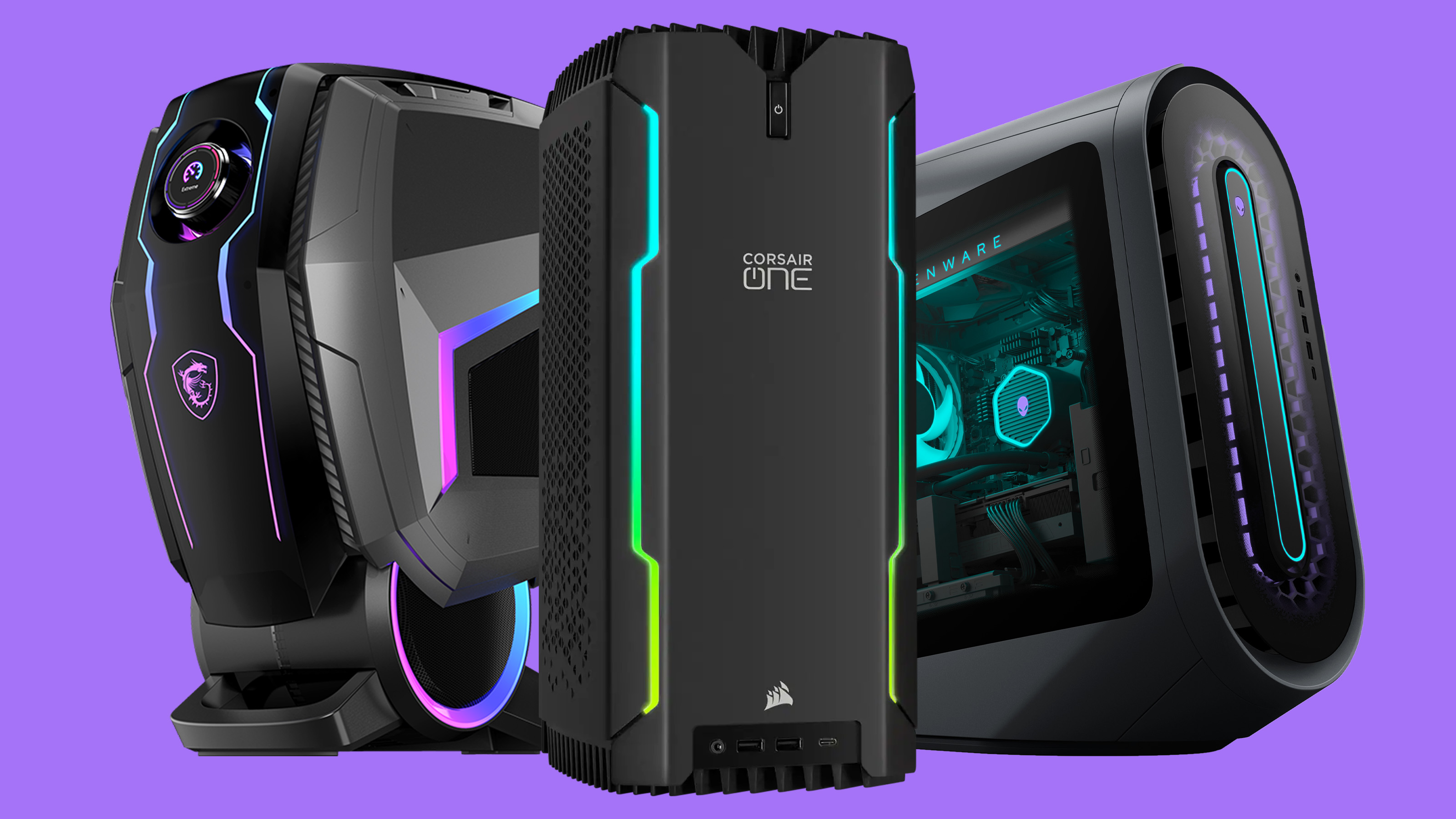
Sign up for breaking news, reviews, opinion, top tech deals, and more.
You are now subscribed
Your newsletter sign-up was successful
Gaming pre-builds may have a bad rap with gamers because some manufacturers are known to cheap out on parts and internal components while also charging more. However, that doesn’t mean that all pre-built gaming PCs are bad investments.
Brands like Corsair, MSI and Alienware have the best pre-built gaming PCs for gamers who cannot and simply don’t want to build their own gaming PC, each one boasting its own strengths (as well as weaknesses). And, if you’re going to get one, you should get it from one of these three.
But, which brand you should go for – Corsair, MSI or Alienware – depends on your budget and needs. Corsair makes powerful gaming PCs, but they tend to be overpriced, especially at the highest configurations. The same is the case with Alienware, which is also well-known for its design but notorious for not being upgrade-friendly. Meanwhile, MSI offers more affordable options but struggles to compete in terms of cooling.
So, between Corsair, MSI and Alienware, which brand makes the best gaming PCs? There’s no one true winner, but we’ll break each one down for you so you can choose the most ideal one for your gaming needs.
Corsair gaming PCs
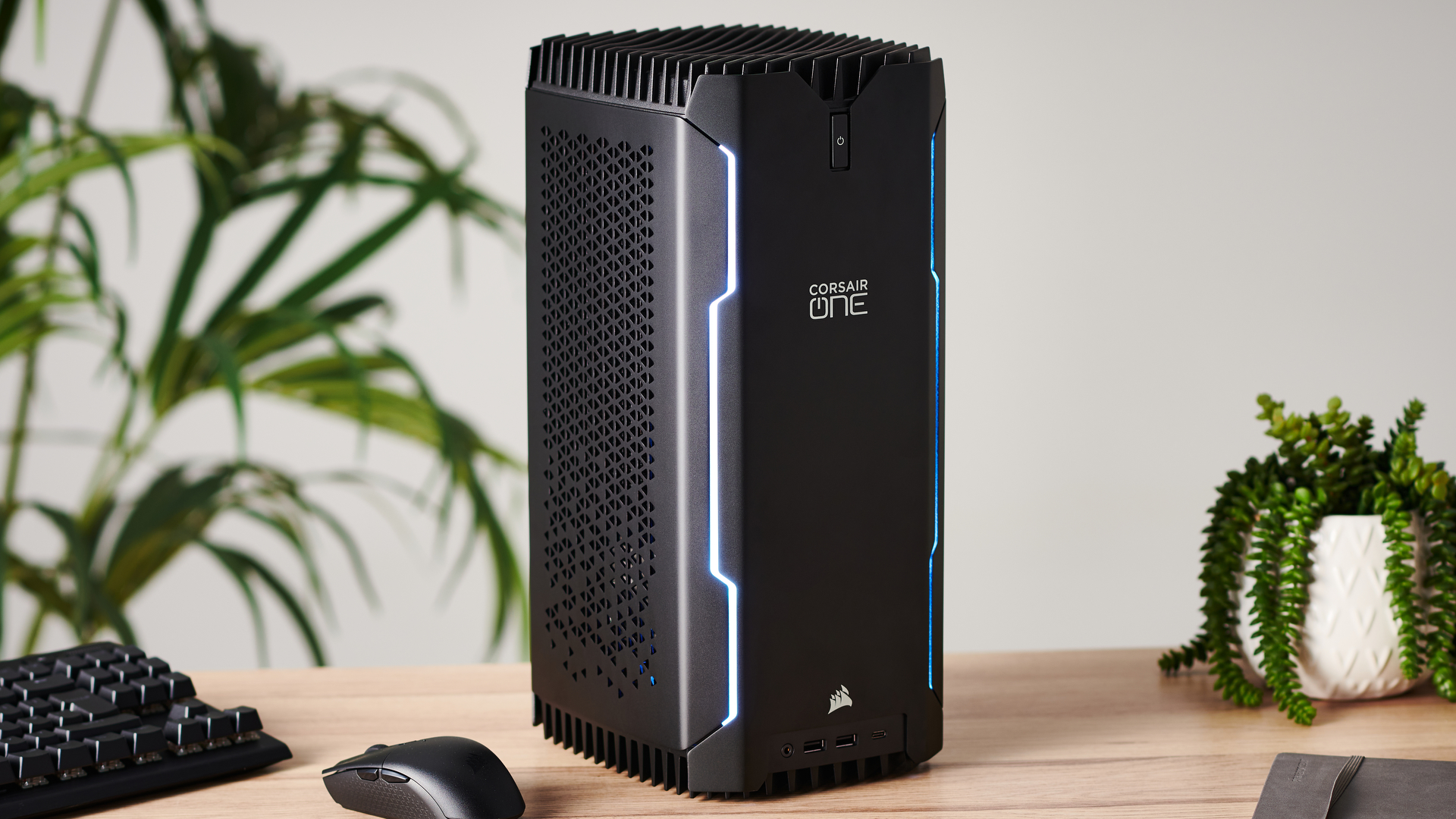
Corsair is not just among the biggest and most trusted name in gaming peripherals. Their reputation for making reliable, excellent quality products extends to gaming PCs as well. So, naturally, their PCs should be at the top of your list if you’re looking for a powerful pre-build. The only catch is that you might have to pay a steep price for one.
For
- Easier to upgrade due to Corsair’s aftermarket parts
- Powerful gaming PCs
Against
Sign up for breaking news, reviews, opinion, top tech deals, and more.
- Overpriced
- Corsair One parts break faster due to small case
Corsair makes powerful gaming PCs that are also among the best gaming PCs you’ll find on the market. And, really the only thing that would really turn anyone off from buying one of them is the price.
The manufacturer has two gaming PC models – the high-end and highly coveted Corsair One and the ever-so-slightly more affordable Vengeance. Both of these are expensive, especially the Corsair One whose price of entry currently starts at $2,500 (£2,400, AU$3,600). That’s just for a lower-end model with a slighting ageing 9th-generation Intel Core chip and RTX 2080 Super. If you do want newer components, however, the line also has a few RTX 3000, 12th-gen Intel Core-powered configurations on hand.
The Corsair Vengeance is a little cheaper, starting at $1,800 for an AMD Zen 3, RTX 3060 configuration. But, currently, it’s only available in the US, and it’s still a little overpriced for what you’re getting. If you want the latest internal components, be ready to splurge as you could be looking at burning an over $4,000/£4,000/AU$5700-sized hole in your bank account.
Corsair’s Origin PC brand sits in the premium market as well, starting at $1,963 (about £1,600, AU$2,800).
As expensive as they are, their build quality and designs are unrivalled. Corsair One’s small form factor is lauded for keeping things compact yet still very powerful. Meanwhile, Corsair Vengeance is praised for its beautiful, stylish design, with front and side panels that allow you to showcase your components' RGB lighting.
That isn’t surprising since Corsair and Origin PC both use Corsair PC cases (though one particular Origin PC model, the Chronos, uses an exclusive Origin PC case), which are considered to be the cream of the PC cases crop. And, those cases come in different types and sizes, so whether you want a Corsair-branded gaming PC or a highly-customizable Origin PC, you’ve got many options to choose from.
Just bear in mind that if you’re going for one with a small form factor, you’ll have to contend with limited expandability. A handful of Corsair One users have also encountered parts breaking or not working out of the box, which many attribute to its small size not offering better heat management for today’s powerful components.
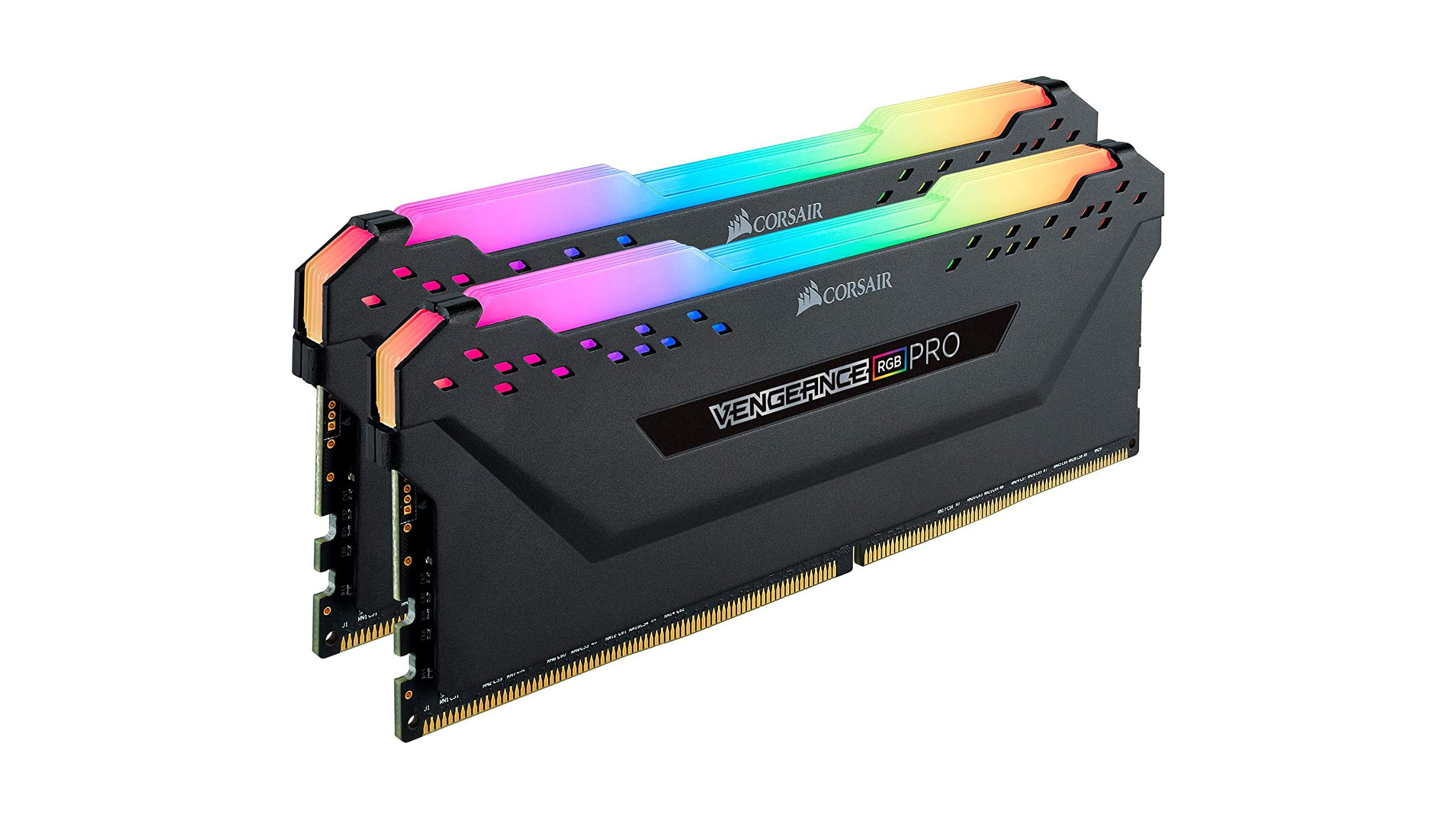
The good news is that Corsair uses its own aftermarket parts for its gaming PCs, and they’re typically much better quality than the cheap ones that Dell is notorious for using. So, there’s a lesser chance of those internals breaking. And, if they do down the line due to the usual wear and tear, you can rest assured that they’re easily replaceable as Corsair does make its PC components – CPU coolers, fans, memory, storage, and even PSUs – readily available for purchase.
MSI gaming PCs
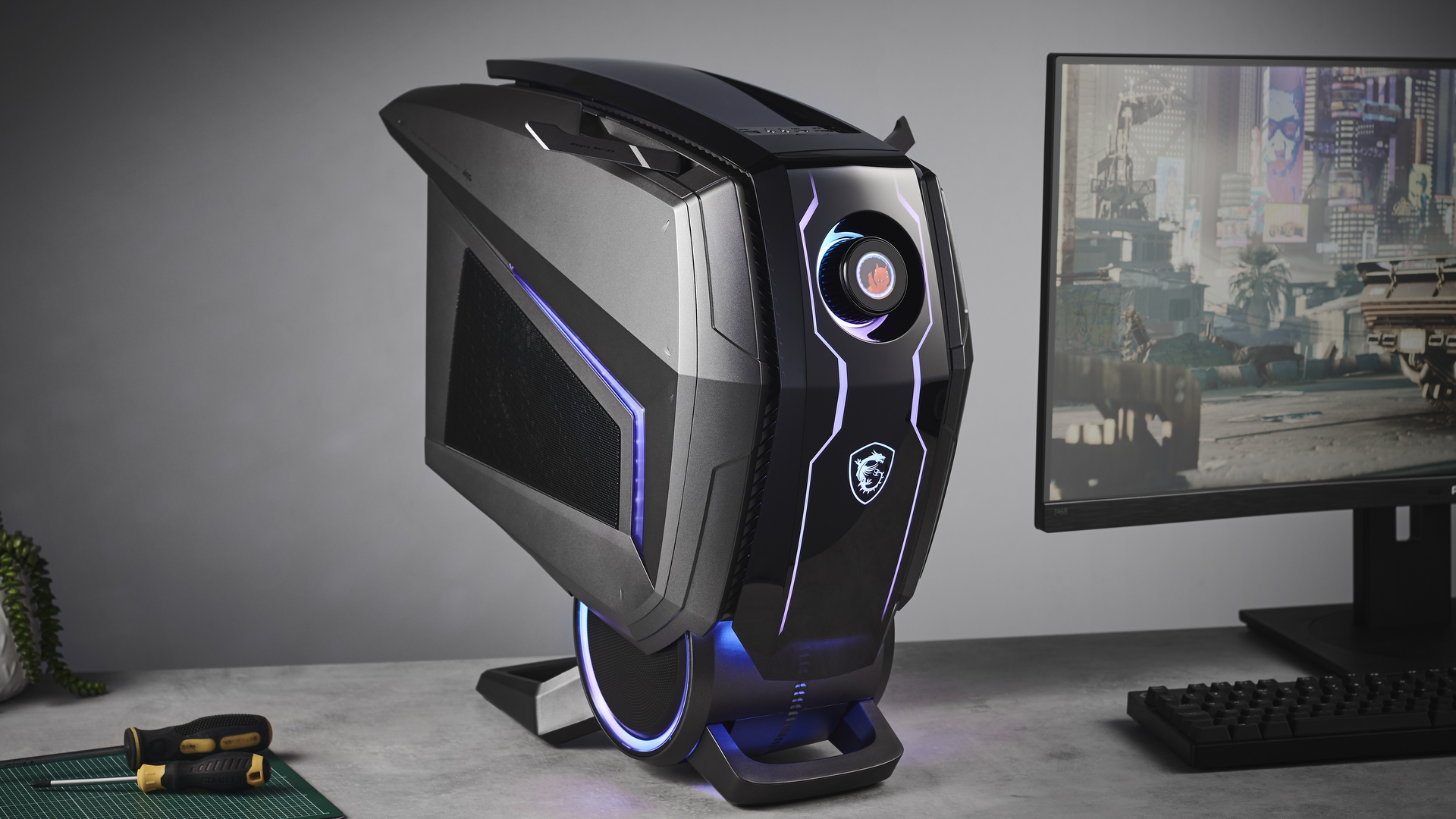
MSI is among the biggest names in PC and laptop gaming, and the brand is just as much known for building powerful gaming devices as it is for offering many options for all budgets. So, if you’re looking for a pre-built gaming PC that is in the budget or mid-range, MSI’s online store should be one of the first places to look. It’s got several different gaming PC series, with the Aegis and the Codex series being the most affordable. And, if you’re looking for a unique-looking build, the MEG Aegis Ti5 is something to behold.
For
- More affordable options
- Powerful, MSI parts and components
Against
- Some configurations are hard to find
- Cooling can be an issue
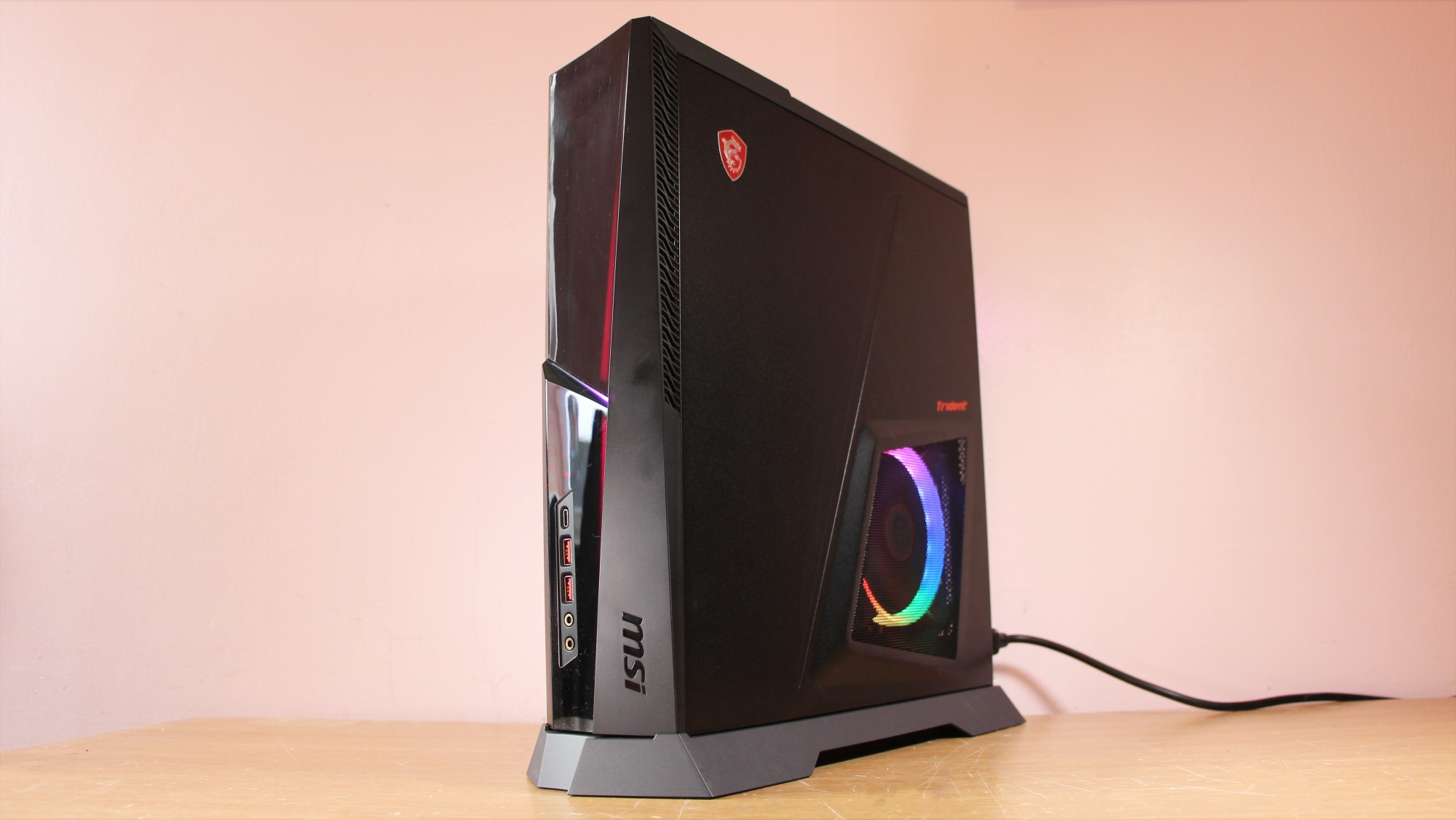
Because of the many models and series MSI has, we’re not going to cover every single one. The main thing to know here is that the manufacturer has a variety of options for all budgets, although you’ll still be hard-pressed to find something in the dirt-cheap section.
Its Codex series, for example, starts at $1,150 in the US for an 11th-gen Intel Core and RTX 3050 configuration. Meanwhile, you’ll find an Aegis R for around $1,200 with a 12th-gen chip. Although that’s not exactly what most people would call cheap, they are more affordable than the competition.
The price does go much higher from there. Mid-range configurations are on hand, but pricey ones are more prevalent. The MEG Trident X, known for its slim profile, will cost you as much as $4,700 while the MEG Aegis Ti5 can set you back a whopping $5,000 in the US.
The tricky thing about MSI gaming PCs, however, is that finding availability is a little tricky, especially outside the US. You might have noticed that we haven’t included UK and Australia prices in our examples above, and that’s because either those configurations aren’t available in these regions or the specific models have yet to reach them.
When it comes to build quality and design, many will tell you that MSI gaming PCs are robust, attractive and highly upgradable. Some, like MEG Trident X, which looks like the head of an Autobot, even offer that unique character you won’t see on other pre-builds.
MSI uses its own PC cases as well as its own internal components, of which it’s got plenty. After all, MSI doesn’t just have CPU coolers, SSDs and PSUs. It’s got its own aftermarket graphics cards and motherboards as well. And, they’re all highly praised by users.
Just like Corsair, MSI makes them available for purchase as well. So, getting an MSI gaming PC means you’ll find it easier to upgrade or replace parts. That’s on top of the fact that none of its gaming PCs includes proprietary components.
MSI gaming PCs are reliable, and depending on your configuration – you probably shouldn’t expect gaming at the highest settings if you’ve got an RTX 3050-powered MSI gaming PC – incredibly powerful. You wouldn’t have to worry about one crapping out on you after only a few months, again because MSi makes the components and parts.
However, cooling is a bit of an issue if you’re going to one of its slim PCs. The Trident series might be legendary for its impressively slim profile, but know that some users have experienced problems with cooling or heat management.
Alienware gaming PCs
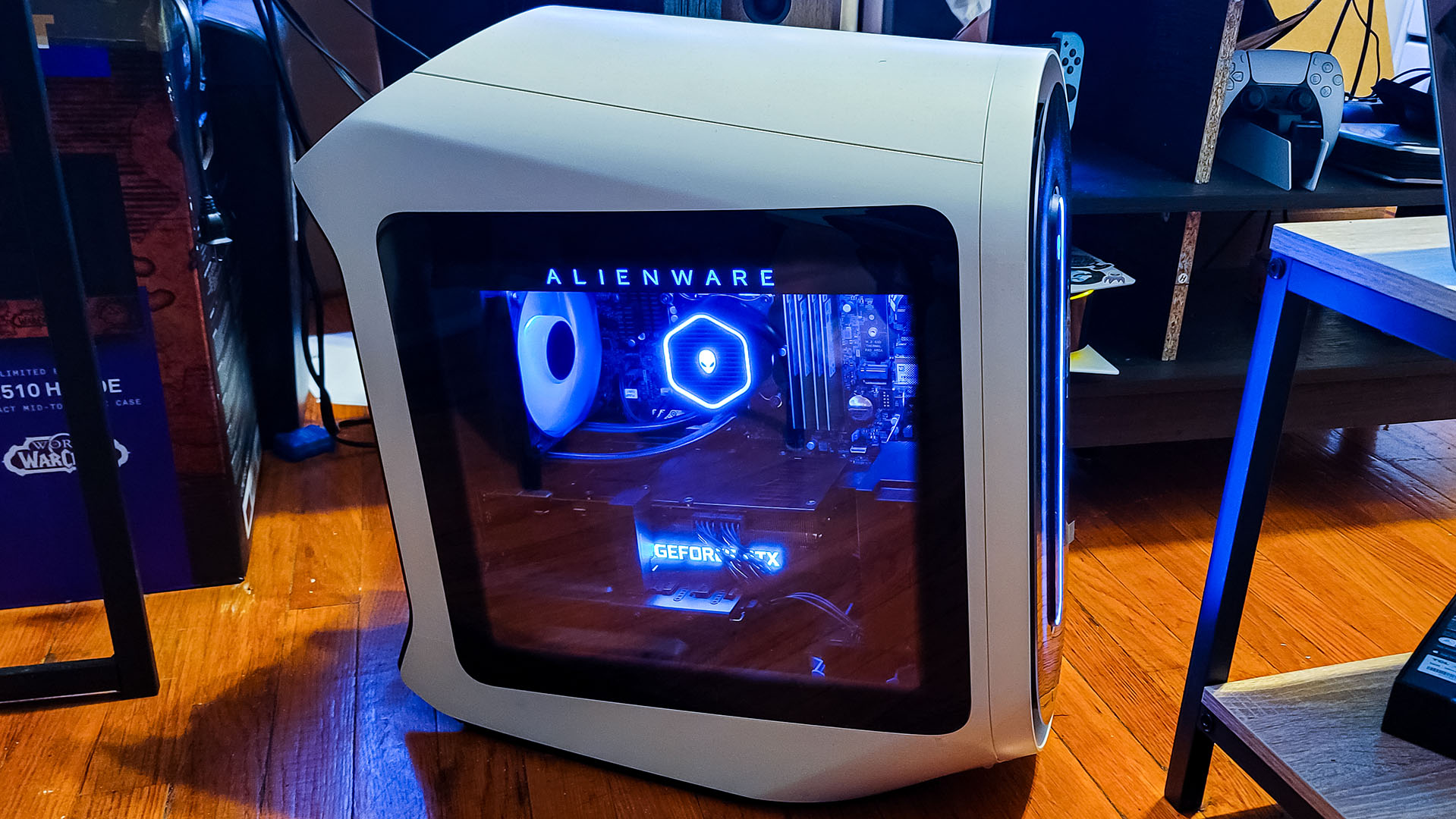
Alienware gaming PCs are among the most premium pre-builds on the market, and they are highly praised for their power and design. However, many gamers who are against pre-builds also pick on these PCs the most, ragging on them for many reasons. The problem is that while they are beautiful and powerful, they’re also excruciatingly overpriced and are notorious for having bad airflow and heat management.
For
- A lot of power
- Beautiful design
Against
- Overpriced
- Not the most upgradable
Alienware gaming PCs are often considered to be very overpriced, and that’s the consensus not just amongst pre-build naysayers. And, it’s a fair criticism considering that the cheapest configuration you’ll find from its latest R13 and R14 series is a $1,371/£1,149 one that only comes with an aging GTX 1650 Super.
If you want an RTX 3000 GPU powering your graphical needs, alongside a 12th-generation Intel Core, the Alienware Aurora R13 price of entry is $1,959 for an i7-12700F + RTX 3060 Ti model in the US, £2,099 for an i7-12700KF + RTX 3060 configuration in the UK, and AU$3,699 for i5-12400F + RTX 3060 option in Australia. That is steep indeed.
AMD fans might save some money with the Alienware Aurora R10 or Alienware Aurora R14 Ryzen Editions, but not by much.
In other words, you can get equally powerful builds for much less, which makes it hard for many consumers to justify getting an Alienware gaming PC. While their power is undeniable, getting one is really more of a status symbol than anything else.
Not that we can blame Alienware fans. This writer is a proud Alienware laptop owner herself. It’s hard to deny their appeal, thanks in large part to their gorgeous space-age inspired chassis that only gets better and sleeker every few years. Alienware gaming PCs and laptops are what we’d imagine humans from the Jetsons and 2001: A Space Odyssey would have in their homes, and it separates them from all other gaming PCs out there. At least, aesthetic-wise.
Of course, that’s only on the outside. While that unique outer case makes Alienware gaming PCs stunning to look at, it also hides another reality – that the actual chassis that shelters all the internals is much smaller. And, this is another reason why PC builders detest these pre-builds.
The smaller metal chassis inside means that these PCs cannot deliver the airflow needed to keep those powerful internal parts cool enough to run efficiently. In fact, they’re notorious for getting too hot and too loud thanks to the fans inside working extra hard. Plus, the way the chassis is designed, there isn’t space for a larger AIO liquid CPU cooler.
Speaking of upgrades, Dell has made it much easier to access the internals for any upgrades down the line. The catch, though, is that Dell is also known to use non-standard or proprietary parts, which makes upgrading, expanding or even replacing internals much trickier. That’s not good, especially considering that Dell tends to also cheap out on power supplies and motherboards.
That isn’t to say that Alienware gaming PCs aren’t capable. On the contrary, they are among the most powerful gaming PCs out there. However, getting one isn’t the best value. These computers are best left to folks who have deep pockets and can afford to simply replace an entire PC every couple of years or so.

Michelle Rae Uy is the former Computing Reviews and Buying Guides Editor at TechRadar. She's a Los Angeles-based tech, travel and lifestyle writer covering a wide range of topics, from computing to the latest in green commutes to the best hiking trails. She's an ambivert who enjoys communing with nature and traveling for months at a time just as much as watching movies and playing sim games at home. That also means that she has a lot more avenues to explore in terms of understanding how tech can improve the different aspects of our lives.